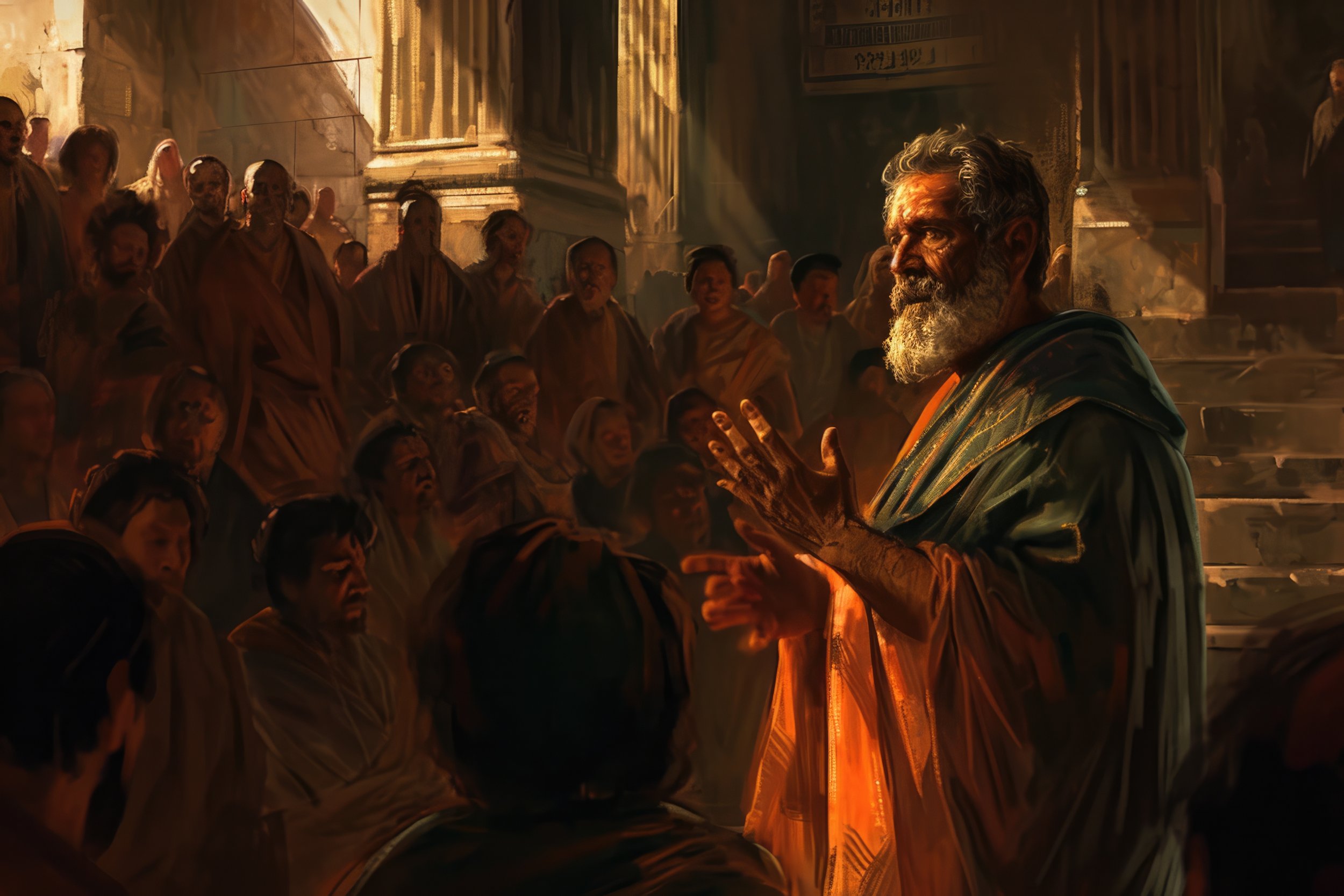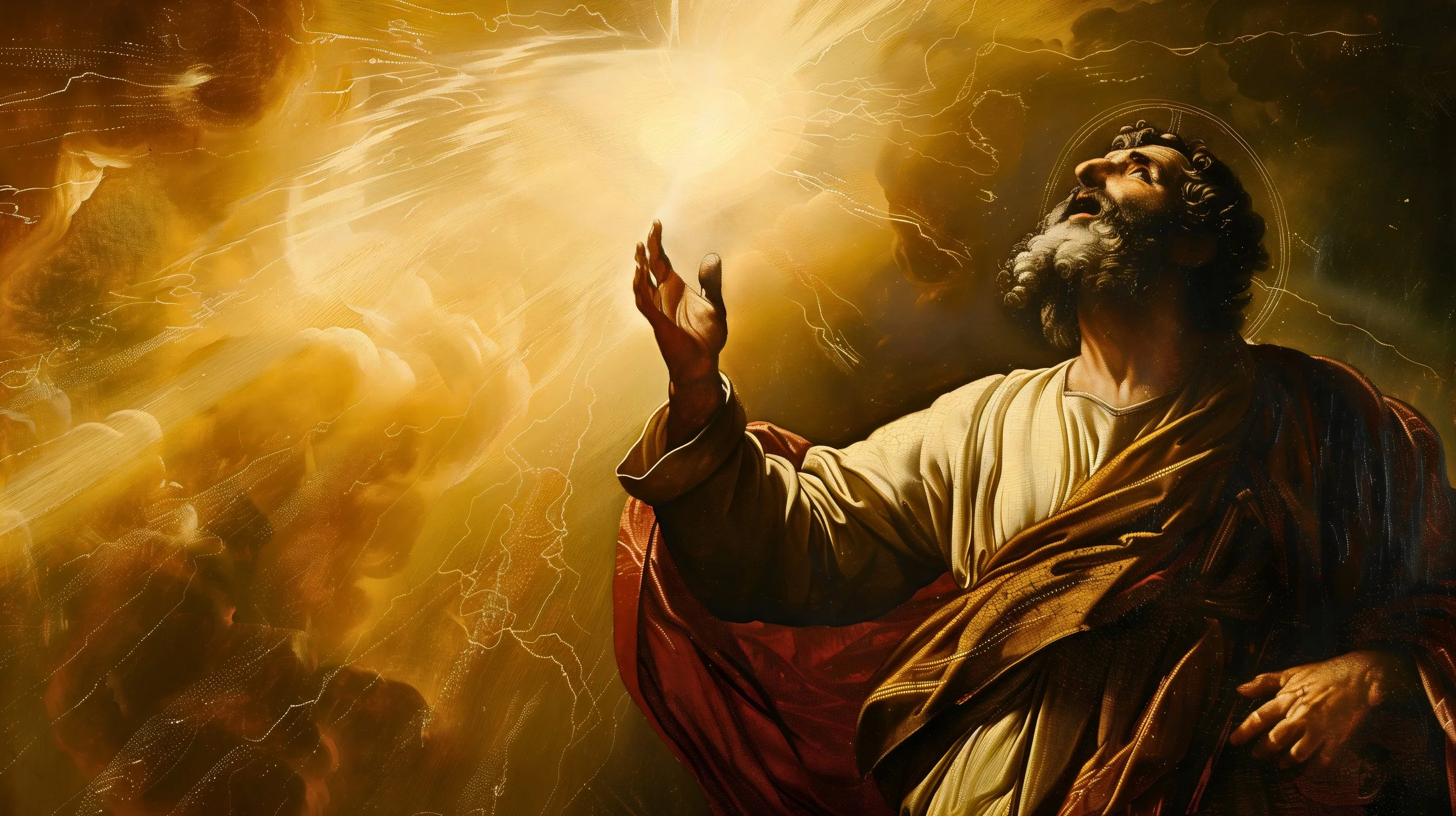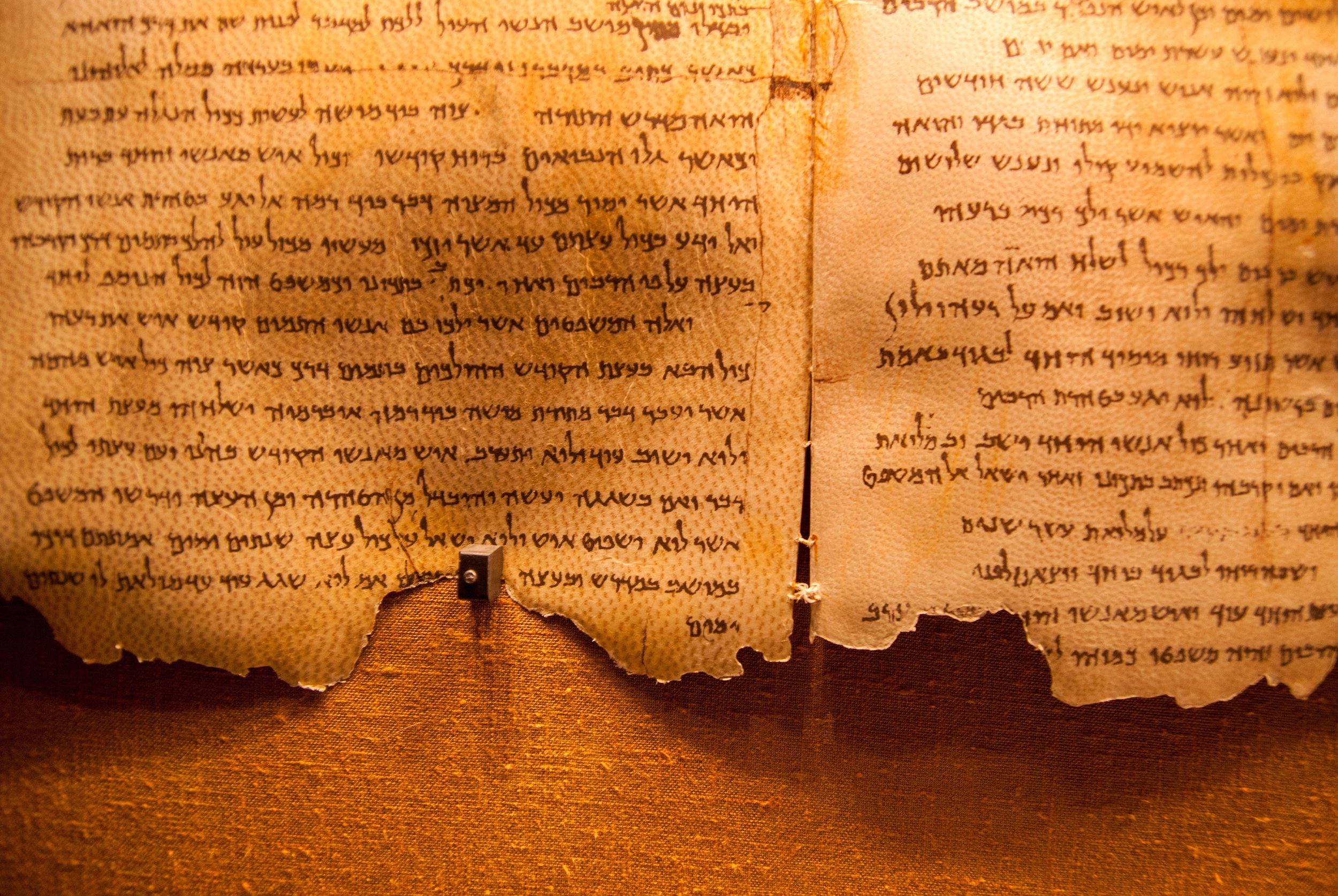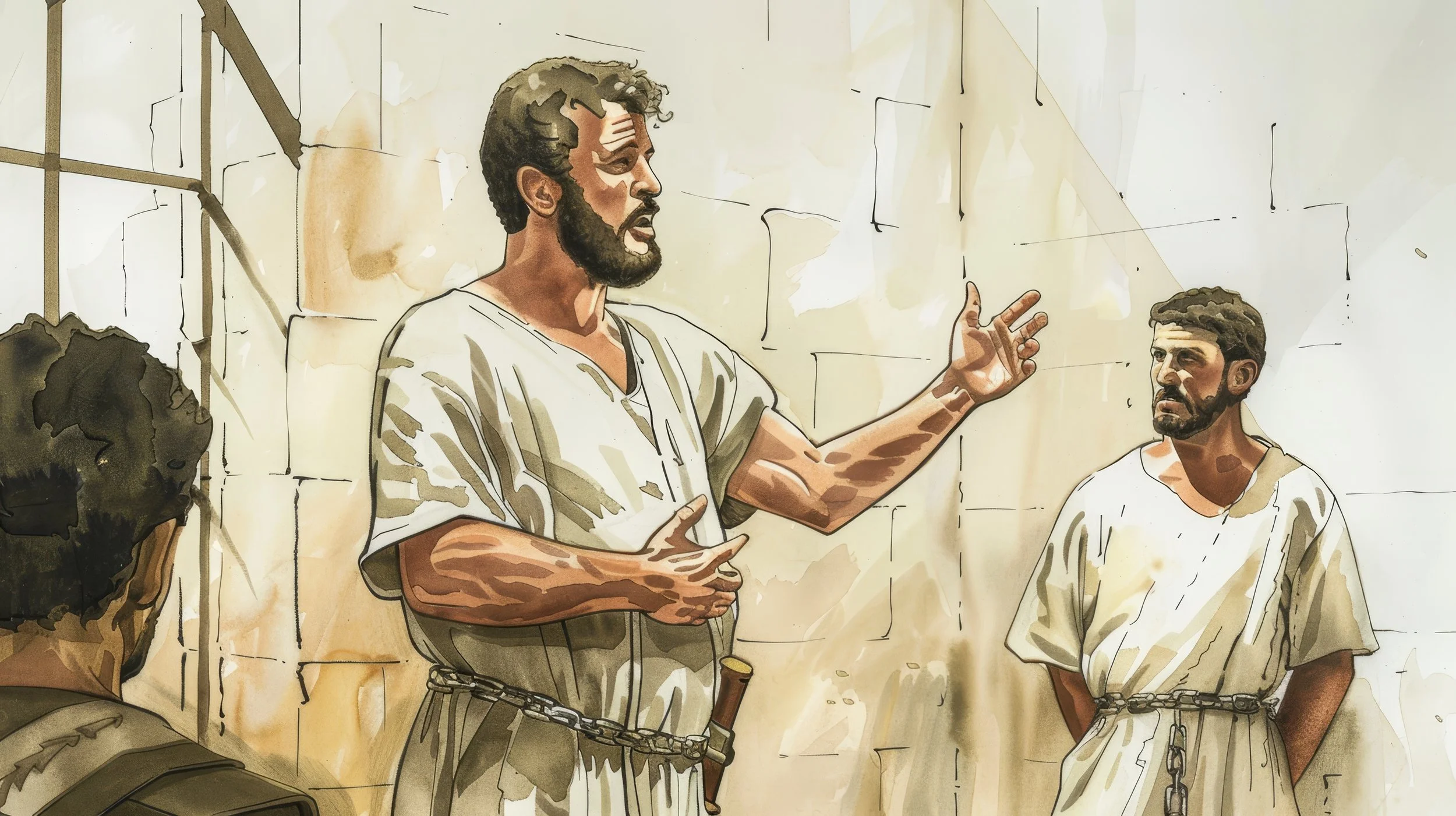
Understanding the Role of the Holy Spirit
This lesson traces the work of the Holy Spirit from creation to resurrection, revealing how the Spirit not only brings life but also sustains it. Through Scripture, we see the intimate connection between God's breath, word, and Spirit, all working together to create, sustain, and renew. The Holy Spirit is not only a present help but also a future promise, assuring believers of the resurrection and eternal life to come.

The Distortion of the Jewish Narrative: Competing Theologies and the Loss of Biblical Resurrection and the Misunderstood Role of the Holy Spirit
This lesson examines how the biblical hope of bodily resurrection was reshaped by external influences, including Hellenistic philosophy and Roman thought, which emphasized the immortality of the soul over physical resurrection. These distortions, along with dispensationalism and inaugurated eschatology, shifted the focus from God's future kingdom to an immaterial heavenly existence. Understanding the true biblical narrative of resurrection and the Holy Spirit’s role in creation, redemption, and renewal is key to reclaiming the eschatological hope central to the Christian faith.

Discipleship in Light of the Day of the Lord: Bridging Biblical History and the Coming Judgment
This lesson focuses on reshaping discipleship by rooting it in the biblical framework of the Day of the Lord, a concept central to first-century Jewish apocalyptic thought. Rather than viewing discipleship merely as a path to moral improvement, this approach emphasizes the future reality of God's judgment and the return of Christ. By presenting the gospel within the broader narrative of history—from creation to the coming kingdom—this lesson explores practical steps to build a discipleship culture that reflects the urgency and purpose of preparing for God’s ultimate plan.

The Destruction of the Temple and Messianic Expectations: Navigating Jewish Apocalyptic Hope and Preterism
The destruction of the temple in 70 AD was a pivotal event for early Messianic Jews, leading them to question how it aligned with the teachings of Jesus and the apostles. While the apostles likely expected the Messiah to return during their lifetime, the temple’s fall did not signal the fulfillment of all prophecy. Instead, it followed a recurring pattern of covenant breaking, divine judgment, and repentance seen throughout Israel’s history. By understanding this broader biblical context, we recognize that 70 AD was significant but not the ultimate culmination of God’s promises. The early believers, like their ancestors, continued to anticipate the future return of Christ and the fulfillment of God’s eschatological plan.

Who is the Bride of Christ?
This lesson explores the rich symbolism of the "Bride of Christ" in light of ancient Jewish wedding customs and biblical festivals. The bride represents the descendants of Abraham, redeemed Israel, and those grafted into the covenant through faith. By examining the prophetic significance of festivals like Rosh Hashanah and Yom Kippur, we see the deeper meaning behind the Messiah’s first coming and the anticipation of His return. This imagery calls believers to a life of readiness and expectation as we await the ultimate fulfillment of God’s promises.

Salvation by Allegiance: Rethinking Faith through Matthew Bates' Lens
In Salvation by Allegiance Alone, Matthew Bates challenges the traditional understanding of pistis (faith) by redefining it as "allegiance" to Jesus as King. This perspective moves beyond mere intellectual belief, emphasizing a wholehearted commitment that includes obedience, loyalty, and discipleship. Bates argues that salvation is not simply about trusting in Christ’s sacrifice but also about living under His rule, making faith an active, ongoing relationship. This rethinking of pistis encourages believers to view salvation as allegiance to Jesus, fundamentally altering our approach to faith and discipleship.

The Jewish Paul
The Apostle Paul stands as one of the most pivotal figures in the New Testament, shaping the foundation of Christian theology. Despite his critical role, Paul has often been misunderstood, labeled as someone who abandoned Judaism to create a new religion. This view suggests that Paul violated both the Torah and the teachings of Yeshua, yet more recent scholarship argues that Paul remained an observant Jew throughout his life. His name wasn’t changed from Saul to Paul, nor did he forsake the commandments of the Torah. In fact, when accusations arose that he had abandoned Judaism, Paul publicly completed a nazirite vow in Jerusalem, affirming his commitment to Jewish practices. Even in court, Paul testified that he continued to live as a Torah-observant Jew while faithfully following Yeshua, offering a fresh perspective on the true nature of his mission and identity.

Paul the Apostle to the Gentiles
This article argues that Paul must be understood within his unique calling as the apostle to the Gentiles, rather than as a universal theologian addressing a homogenized “church.” From his Damascus road encounter onward, Paul consistently identified his mission as bringing Israel’s Messiah to the nations, a role affirmed by Scripture and recognized by the other apostles. His letters, directed primarily to Gentile-majority communities, address their specific struggles with idolatry, Torah, circumcision, and identity within God’s covenant. Misreadings that ignore this context wrongly portray Paul as rejecting the Law of Moses altogether, when in fact he upheld Israel’s covenant while teaching Gentiles how to enter God’s promises without becoming Jews. Framing Paul’s writings in light of his Gentile mission preserves Israel’s covenantal integrity, clarifies his st

Paul Within Jewish Apocalyptic: Reframing the Apostle in His Historical Context
This lesson reframes the Apostle Paul within the Jewish apocalyptic worldview of the Second Temple period, rather than the later church traditions that separated him from Israel’s hope. Paul’s education, background, and complex rhetoric have often made him more difficult to interpret than other apostles, leaving his writings vulnerable to distortion from the earliest centuries onward. Movements such as Marcionism twisted Paul’s message, detaching it from the Hebrew Scriptures and recasting it into foreign frameworks. Yet Paul consistently identified himself as a Pharisaic Jew, rooted in the promises to Israel and proclaiming the Messiah in continuity with Israel’s Scriptures. By grounding his letters in the shared apocalyptic language of his time—resurrection, judgment, kingdom, the Day of the Lord—Paul discipled Gentiles into Israel’s hope rather than away from it. Understanding Paul, therefore, requires us to read him not as an innovator breaking with Judaism, but as a “Jew of Jews” interpreting the death of the Messiah, the gift of the Spirit, and the mission to the nations through the lens of Jewish apocalyptic expectation.

Paul and the Day of the Lord
This lesson examines Paul’s teaching on the Day of the Lord within the Jewish apocalyptic framework of the late Second Temple period. Building on the four pillars of Jewish eschatology—judgment of the wicked, resurrection of the dead, the Messianic kingdom, and the climactic Day of the Lord—we see Paul consistently affirming these hopes without redefining them. In letters like 1–2 Thessalonians, Romans, 1–2 Corinthians, and Philippians, Paul exhorts believers to persevere, endure suffering, and live faithfully in light of the coming day of wrath, resurrection, and kingdom. His references assume shared categories familiar to his Jewish contemporaries rather than novel reinterpretations. Paul’s opponents and later movements, such as proto-Gnostic and Hellenistic spiritualizers, attempted to twist these hopes into allegorical or purely spiritual realities, but Paul maintained continuity with Israel’s apocalyptic expectation. For him, discipleship is life oriented toward the climactic appearing of Jesus, the righteous Judge, who will raise the dead, bring justice, and establish the kingdom in the age to come.

How the Jewish Apocalyptic Hope Was Recast in Church History
This lesson traces how the original Jewish apocalyptic worldview—rooted in linear time, continuity of creation, bodily resurrection, and the messianic kingdom—was gradually recast in church history. Beginning with the spread of Greek philosophy, redemption shifted from embodied renewal to spiritual escape from the material world. Thinkers like Valentinus, Marcion, and Justin Martyr laid the groundwork, with Origen systematizing a dualistic, Platonic theology. Later, Eusebius and Augustine reframed redemption in Roman political and ecclesiastical terms. Over time, the Jewish hope of resurrection and renewed creation was eclipsed by spiritualized and institutionalized narratives, reshaping Christian eschatology for centuries.

Paul and the Death of Messiah
This lesson examines Paul’s teaching on the suffering and death of the Messiah, situating it not as a fulfillment or redefinition of Israel’s eschatological hopes but as a sacrificial death firmly rooted in Israel’s covenantal tradition. By drawing on the language of the sacrificial system—blood for blood, life for life—Paul presents the cross as the once-for-all offering for sin, entrusted to him as the core apostolic proclamation. Far from spiritualizing or altering Jewish apocalyptic expectations, Paul frames the Messiah’s death as the necessary means by which reconciliation, propitiation, justification, and redemption are secured, all in anticipation of the Day of the Lord, the resurrection, and the Messianic kingdom. In doing so, Paul preserves the forward-looking hope of Israel, showing that the cross does not cancel or complete eschatology but anchors it, ensuring its future realization.

Paul and the Gift of the Holy Spirit
This lesson argues that Paul’s “novelty” of the Spirit does not inaugurate a realized eschatology, but operates wholly within the Jewish apocalyptic hope shared by the apostles: resurrection, judgment, and the coming kingdom. Surveying Romans 8, Acts 15, 2 Corinthians 5, and Ephesians 1, it shows Paul speaks of the Spirit as (1) the believer’s assurance of future resurrection (firstfruits/guarantee/seal), (2) the attestation that Jesus of Nazareth is truly the Messiah, and (3) the confirmation that the cross is God’s appointed means to that future life. Against modern claims (e.g., Dodd, Fee) that the Spirit proves the age to come has “already” arrived, Paul consistently ties the Spirit to what is still ahead: the redemption of our bodies, the Day of the Lord, and creation’s liberation. Even his language of “spiritual” (pneumatikos) bodies in 1 Corinthians 15 denotes Spirit-empowered, bodily existence—not immaterial escape. From creation to new creation, the Spirit is God’s active agent who presently sustains, intercedes, and assures, precisely so that suffering believers endure in hope of the resurrection and the Messiah’s reign.

Paul and the Mission to the Gentiles
This lesson argues that Paul’s “third novelty”—his mission to the Gentiles—does not universalize or spiritualize Israel’s story but extends it within the unchanged Jewish apocalyptic framework. Unlike claims of organized Jewish proselytism in antiquity, the evidence is scant; thus Paul’s work is striking in practice yet rooted in principle: Israel’s covenantal vocation to be a light to the nations. From Acts 13 and 17 to Romans 11 and 15, Paul presents Gentile inclusion as a mercy “to the Jew first and also to the Greek,” serving Israel’s destiny rather than replacing it. Israel’s election, grounded in God’s love and oath (Deut 4; 7; 30), remains intact—the gifts and calling are irrevocable—while Gentiles are grafted into Israel’s cultivated tree and warned against arrogance. The “mystery” is a partial hardening until the fullness of the Gentiles, after which “all Israel will be saved,” culminating in the day of the Lord, resurrection, and restoration. On that horizon Paul locates discipleship: Jews and Gentiles in harmonized distinction, living now in light of the age to come. Hence his doxology—praise for God’s unfathomable wisdom—crowns a vision where Gentile mercy is a fresh initiative inside, not over, Israel’s enduring covenant story.

Paul and the Law
Paul, one of the most pivotal figures in the New Testament, is often misinterpreted as having abandoned Judaism after his revelation of Jesus. However, both the book of Acts and Paul’s own writings provide clear evidence that he remained a faithful, Torah-observant Jew. For Paul, finding the Messiah did not mean forsaking the Jewish law or identity; it deepened his zeal for the Torah. His epistles show that he made a distinction between Jewish and Gentile believers, arguing that Gentiles did not need to convert to Judaism or observe the law to be saved. In fact, Paul's message to Gentile believers in places like Philippi emphasized that their faith in Christ was sufficient. Despite accusations from both Jews and early Christians, Paul remained committed to his Jewish roots while also advancing the message that the faithfulness of Christ was adequate for both Jews and Gentiles. His letters reveal not a man opposed to the Torah, but one who sought to integrate faith in Jesus with a continued commitment to Jewish law and tradition.

Miksat Ma'asei HaTorah - “Works of the Law”
Explore the nuanced interpretations of "Works of the Law,” where we delve into the profound insights from Pauline theology and the Dead Sea Scrolls' Miksat Ma'asei HaTorah. Uncover how these ancient texts illuminate the real intent behind Paul's references, revealing them not as a blanket critique of the Mosaic Law but as a targeted discussion on its use as identity markers within the Jewish community. This exploration not only sheds light on the theological debates of early Christianity but also encourages a more inclusive understanding of faith practices today. Join us as we navigate the intricate dynamics between law, identity, and faith across the ages.

Paul’s Discipleship of the Gentiles into the Hope of Israel
This study argues that Christian discipleship only makes sense inside the Jewish apocalyptic hope that shaped Jesus and Paul. Far from breaking with Israel’s story, Paul’s mission to the Gentiles grafts them into it, calling them to become students of Israel’s Scriptures and to live now in light of the Day of the Lord. We trace how this hope drives mission (2 Pet 3; Ps 110; Rom 11), sustains endurance in suffering (Rom 8; 2 Cor 4; Heb 10), patterns righteous conduct (Rom 13; 1 Cor 6; 2 Thess 1), and frames self-denial (Matt 16; 1 Pet 2). Along the way we expose “realized” alternatives—Greek spiritualism, imperial triumphalism, and nationalist utopias—as counterfeit futures that deform discipleship. The call is simple and urgent: fix your hope fully on the appearing of Jesus and live now as you will live then.

Paul in Context: A Historical Journey of Interpretation
This work traces the modern study of Paul in relation to Second Temple Jewish apocalyptic thought, beginning with Johannes Weiss and Albert Schweitzer in the late 19th century, through debates over consistent, realized, and inaugurated eschatology, and into contemporary movements such as the New Perspective on Paul and Paul Within Judaism. The central claim is that Paul must not be read as rejecting or transforming Judaism, but as operating fully within it—interpreting the death of the Messiah, the gift of the Spirit, and the mission to the Gentiles through the shared apocalyptic worldview of his time. Unlike much historical scholarship, this approach emphasizes that Paul’s proclamation of the cross and substitutionary atonement fits naturally within Jewish apocalyptic expectation, rather than against it. The study also highlights how missiological theology has often lagged behind New Testament scholarship and, by neglecting the Jewish apocalyptic framework, risks misrepresenting Paul’s message.

A New Testament Look at the Oral Torah
The Torah’s significance is tied to Israel, the nation entrusted with it. Paul reminds us in Romans 9:4 that the Torah belongs to the Jewish people, who were given the responsibility to interpret and apply it through both the Written and Oral Torah. While Gentile believers may also embrace the Torah, it’s essential to recognize the authority of Jewish tradition in its interpretation. Yeshua affirmed this in Matthew 23:1-3, acknowledging the role of Jewish leaders in teaching the Torah. As believers, we should respect this stewardship while seeking a balanced approach to Torah observance.

Paul’s Zeal and the Persecution of the Early Jesus Movement: A Jewish Perspective
Paul’s early persecution of the followers of Jesus was not a rejection of Judaism but an expression of deep covenantal loyalty shaped by the traditions of the fathers and the Second Temple ideal of zeal for God’s holiness. As a Pharisee zealous for Torah purity, Paul viewed the Jesus movement as a dangerous internal sect that subverted Israel’s covenant identity—proclaiming a crucified man as Messiah, redefining the Temple as a spiritual community, and welcoming Gentiles without full Torah observance. In his mind, this was not faithfulness but heresy, a Deuteronomy 13-level threat that warranted suppression. His actions reflected the Maccabean and Pharisaic tradition of zeal, which sought to preserve Israel’s sanctity against apostasy. Yet, after encountering the risen Messiah, Paul came to see that the very Torah he defended pointed to Jesus—the righteous one who bore Israel’s curse and was vindicated by resurrection. His zeal remained, but it was transformed: from enforcing covenant purity through persecution to proclaiming covenant fulfillment through revelation.